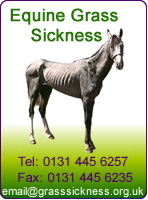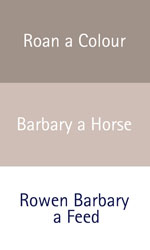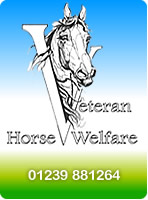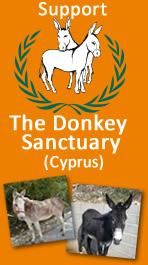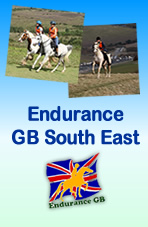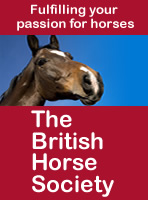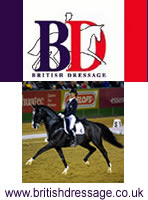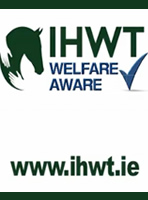
And photographs, if you have any.
Horseytalk.net Special Interview
South East Para Riders
"We just might have the next Lee Pearsons and Sophie
Christiansens waiting in the wings."
- Trainer, Tanya Larrigan
SE Para Riders are the Inter Regional Foundation Squad Champions
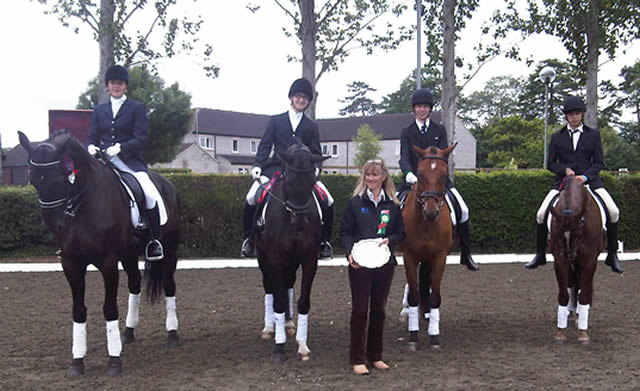
Nicky, Daniel, Ben and Alex with Tanya
Mention Para riders and most people will know the name of the most prolific Paralympian, Lee Pearson, but there are many more who have won medals and titles.
Great Britain has the enviable reputation of having a strong depth of talent and experience built up over the years through The UK Sport funded Equestrian World Class Program.
However the British Equestrian Federation (BEF) is not resting on its laurels and plans are in hand to search out more stars for the future who will bring home the medals. Last year funding from Sport England enabled the BEF to create Five Regional Foundation Squads with the aim of sourcing and producing a pool of up and coming talented riders across England who will hopefully progress onto the World Class Program. The RFS program is a two year turnaround with coaching from world class coaches and the chance to develop what is needed to become an international player.
And it looks as though the best of them are coming from the South East.
They are Nicky Thompson, Daniel Manning, Ben Rodin and Alex Sutton.
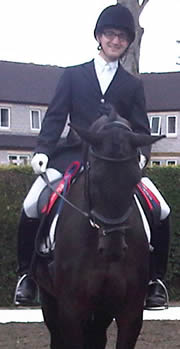 Daniel Manning
Daniel Manning
"The Regional Foundation squad provides a brilliant start for us young riders, the top class training combined with good progress monitoring and assistance in off horse areas has greatly assisted my improvement as a rider and all round athlete.
It was a great feeling to be a member of the winning region, and real testament to Tanya's training over the last year."
They were members of the winning team in the first ever Inter Regional Para Foundation Squad Championships recently organised by the British Equestrian Federation and BD in conjunction with the Para International at Millfield School, Somerset
Twenty riders came from the five regions across the country.
The South East Team was the winning team.
Nicky Thompson, who has been visually impaired since she was eight years old and is based at Elstead, Surrey, was also the reserve individual champion. She missed becoming the overall champion by just one percent. "The international judges said "Super Horse", "Lovely Paces" and "What a partnership!".
Says Nicky, “It is the first year of the BEF Regional Foundation Squads and the extra training and support has been invaluable.”
“I have been riding since I was eight-years old, but it is only relatively recently as my sight has deteriorated, that I have discovered the wonderful opportunities there are for Para-Riders. I only started competing in Para-Dressage last year and am thrilled with how far my horse and I have progressed in such a short time. My ultimate goal is to compete for Great Britain in the Paralympics.”
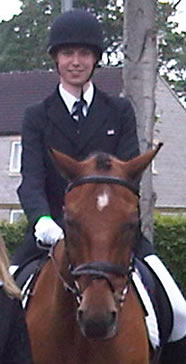 Ben
Rodin
Ben
Rodin
"I have now got my A level results which means that l have secured my place at York University. So unfortunately l cannot continue on the squad next year due to a lack of time to train and compete."
"I would like to take this opportunity to express my thanks for all the help and support that has been given to me over the last 12 months, I really feel my riding has improved greatly as a result"
Tanya Larrigan is the South East team’s BEF coach, herself a former member of the British squad at Olympic, Worlds and European levels. Now a top coach who has vast experience across the equestrian world, Tanya also coaches World Class para rider Kent based Emma Kent who is aiming for London 2012.
Says Tanya, “It’s very exciting. I’m so pleased for SE squad. We’ve been working together for just under a year and so far they have come a long way. Judging by the performances they all did, I’m sure they can go all the way."
Para means Parallel to the able-bodied competitions and the same championships. In order to compete, para riders need to be graded by a specialist physiotherapist, who will decide in which class they can compete. There are five grades, from 1a, the most impaired, to IV, the least impaired – this means the rider can compete on equal terms against other para riders, or they can take part in able-bodied classes if they wish.
The BEF Regional Squad Cordinator, David Hamer, puts it more formally.
“The aim of the Regional Foundation Squads,” he says, “is to identify, support and develop riders and horses demonstrating potential in the Olympic and Paraylmpic disciplines. This competition provided an excellent opportunity for these up and coming para-equestrian dressage riders to develop their riding skills in a competition environment. The riders had the opportunity to ride in front of international judges. Gaining advice and education from them via the competition will be an invaluable part of their development.”
Says Tanya, “Working with the riders sometimes makes me think outside the box as obviously there are times when it is not physically possible for the rider to do as l ask – so we work on doing it another way. My job is to build on what they are doing and also to push them out of their comfort zone a little bit, in order to to help them pull in those extra important marks! They are all an inspiration to work with they are so confident, very dedicated and so talented. They could show the able bodied riders a thing or two. They cannot ride through strength and force, nor do they give up just because the going gets tough!
“Some riders do have their own coach. For me it is also about getting the riders working together as a team in a competitive environment. A lot can be learnt from watching each other ride and talking about their riding.”
Nicky Thompson
Profile
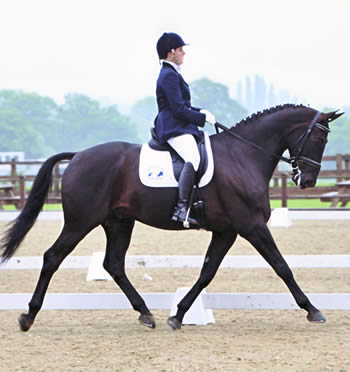 Nicky
Thompson, 32, is a visually impaired Para-dressage rider.
Nicky
Thompson, 32, is a visually impaired Para-dressage rider.
“My sight loss started when I was eight-years-old,” she
says. “About the same time I started riding. At first,
it was gradual, but over the years it has got progressively
worse. Today I have no central vision with only a small
amount of peripheral vision.”
But that has not stopped her enthusiasm for riding. And
competing.
“At first, I used to ride the ponies at the local
riding school. I got my first pony, Velly, when I was eleven-years-old.
She was 18-years-old. We did everything including the local
shows.
“I used to do a lot of show jumping and competed
for my school, college and riding club teams. But then
as my vision got worse, in my early twenties, I switched
to dressage.”
Today Nicky is the proud owner of Welt Santa Cruz. A Hanoverian.
17.2. Ten-years-old.
She rides most days in the arena near her home at Elstead,
Surrey. She also trains with Richard Barrett, the well-known
dressage trainer.
Her success she attributes to five things.
“Experience. I’ve ridden lots of horses in my time. I’ve also come off lots of times. I’ve come to know and understand horses and what makes them tick."
“My horse. He’s a real dressage horse. I backed and trained him myself. I’m bringing him along slowly. I’m not pushing him. We know each other inside out."
“Gary, my partner. He calls for me during the competitions. Once I hear his voice, I know where I am. I also know the number of strides between each marker. Whatever happens, I’m totally focussed. I can then navigate my way around the arena."
“I’m also very competitive. If I want to do something, I do it. Over the years I’ve got used to coping with less sight. It hasn’t made me less competitive. It’s made me even more competitive.”
“My home support team. From my vet, farrier, equine therapist through to my training with Richard and the BEF Foundation Squad, everyone is so supportive and backing me all the way”
People often ask what about the type of horse that is needed for the Para rider?
This does depend on the riders ability and also the Grade they are competing in, as each grade has different requirements from the paces. In 1a it needs only a very good walk with rhythm and the ability to shorten and lengthen the walk strides, whereas a grade 4 is BD medium level.
Some riders have their own horse some have them on loan – there is quite a variety from super cobs to an ex racehorse! As Para dressage is gaining popularity through the awareness being created and with an increasing number of riders, British Dressage is developing a database of loan horses for international para dressage competitions in the UK. The database will provide a vital pool of suitable horses for riders in the lead up to the London Olympics in 2012.
But whatever the horse, whatever its age and wherever it comes from, it must have a good temperament and good paces. The bottom line is that these riders are assessed and marked in exactly the same way as able bodied riders, with the same requirements from their test and their ability to ride the movements.
Alex Sutton
"l like being part of the foundation squad, because it allows me the chance to train with other riders. I normally train on my own. I also like being on the squad because when I attend the squad training sessions i can come away with something I have learnt from the session and then work on that particular task.

"Being part of the winning team at Millfield felt really good, because I knew that I was part of the team. It was a good achievement for me to win a team event"
Says Tanya, “ A good temperament is essential for all the obvious reasons, as they do need to adjust to their rider who may be stronger one side than the other andmay not have the steadiest of hands.
"Every rider is different and so are their needs. For this reason they are allowed extra compensating aids. Some can use their voice. Others cannot. Some prefer to ride without stirrups or need to carry two whips. The riderhas a card which details the compensating aids, so the steward knows who can use what or not.
“As a coach it is very important when l am schooling the horse to work it as closely as possible to its regular rider. For instance, if the rider has their reins through special rings on the saddle then l will keep the reins in the same manner and put my hands in the same place as the rider right down to riding with just one finger on the rein. If there is a weakness in the legs l must try to only give the aids with the lightest of touch.
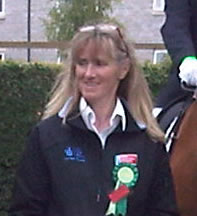 Tanya is backing Nicky and all the other SE Team riders all
the way.
Tanya is backing Nicky and all the other SE Team riders all
the way.
“Our Para riders lead the world,” she says. “We’ve got to make certain we give those who want to start moving up the ladder all the support and encouragement we can. For those who are not able to go into the Para competitions there is the Riding for the Disabled Association. That is a tremendous support system.Riding be it in whatever form offers great benefits both physically and mentally and for some it is real therapy.
“For the Para riders who would like to apply then they should check out the Regional Foundation Squads information on the BEF website. There is nothing to be frightened of. The successful riders are then allocated to their appropriate Regional Foundation Squad, which then provides them with all the back-up and support and training they need.
"We want to help them progress as far as they can. Who knows we just might have the next Lee Pearsons and Sophie Christiansens, waiting in the wings”




